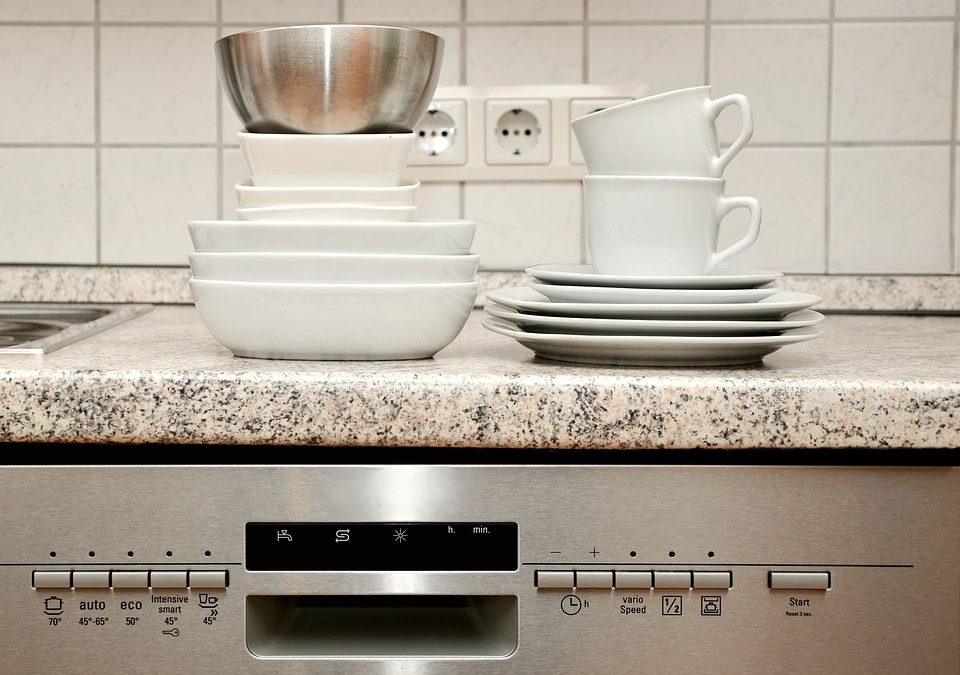Are You Ruining Your Appliances? (Part 1/2)

Household appliances are not like phones or jeans – you don’t spend a lot of money on one thinking that you’ll be replacing it in a year or two. Good appliances cost big bucks, and come with the expectation that they should last for ten years or more. With the right maintenance and use, this can be a reality. On the other hand, you’d be amazed at the simple maintenance biffs or common misuses that can lead your washer/dryer/fridge/etc. to an early grave. Either fixing or replacing these essential parts of your home can cost thousands of dollars, so small mistakes can definitely be costly.
The good news is that it’s not that hard to take good care of your appliances. A bit of maintenance goes a long way, especially if you schedule it on your calendar and do it when it ought to be done. The following are little steps that can make a BIG difference in your home.
Your refrigerator: the hard worker
Your fridge is easily the workhorse of your home, pumping 24 hours a day, 7 days a week, 365 days a year to keep your food chilled and unspoiled. Regular maintenance on this appliance means that it doesn’t have to do extra work, which leads to additional wear and tear and which can shorten the life of your refrigerator. A little regular maintenance can definitely lead to a longer lifespan in this case. Refrigerator maintenance primarily involves cleaning the condenser coils, which release heat from the sealed system and therefore keep your fridge cold. Dirt, pet hair, and food can build up on these coils and create a tarry smut that can choke your system and make your refrigerator work double-time to stay chill. Twice a year, you should use either a coil brush or a vacuum cleaner to unsully these coils, which can be found painted black on the back of your appliance if it is an older model, or on the bottom of the unit in newer ones. Also important for fridge maintenance: make sure the gasket, which is the rubber edging that lines the door and forms a seal when it closes, is clean. This part is easy – it just takes a warm, soapy cloth every few months or so. These seals can wear out, at which point they are relatively inexpensive to replace.
Your dishwasher: the finicky one
Compared to other appliances, dishwashers tend to need a little more TLC to keep them happy and running the way they should. Of course, a dishwasher has a lot more moving parts than most other units in your home, so it makes sense that they’d be a bit fussy. First off, let’s deal with the big one (on which nobody agrees) – no matter what your dishwasher advertises, you should absolutely scrape and rinse food particles off of plates and utensils before they go inside the machine.
“Some dishwashers advertise the ability to clean even the grimiest dishes, but food particles can gum up moving parts and become stuck in crevices,” says Doug Rogers, president of Mr. Appliance repair service.
You also need to periodically sanitize the dishwasher itself, whether with regular dishwasher detergent or a cup of vinegar run on an empty load. This, done every three to six months, cleans the dishwasher of calcium deposits, which can accumulate on the sprayer arm and majorly shorten the life of that essential component. You also should know what kind of filter your dishwasher has. Some have self-cleaning filters, but if yours does not and your appliance has a manual filtering screen under the bottom spray arm, you should clean it about once a month by running it under warm water. If you don’t take the time to do this simple step, trapped food particles can break down into a thick sludge that stinks up your dishwasher to high heaven, as well as blocking water flow and eventually requiring a pricey repair. Lastly: if you almost never use your dishwasher, you may thunk that you are in the clear. This simply isn’t true – dishwashers have to be run periodically (at least a couple of times a month) to prevent dry-rot of the the seals, gaskets, and hoses, as well as to prevent mold and mildew from starting to build up. The drain at the bottom of the appliance should also be checked constantly for any blockages, since a blocked dishwasher is a broken one.



